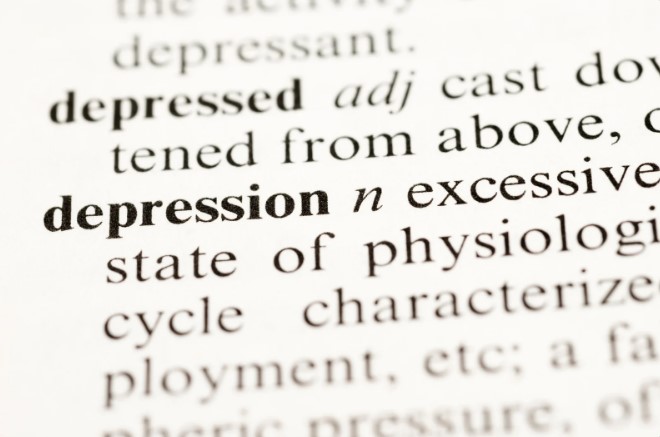Seeking help for depression is a transformative decision, and understanding the process can ease first-time concerns. In Florida, mental health treatment centers rely on evidence-based assessments to support those experiencing emotional distress. As part of this commitment, the company URP Behavioral Health equips its clients and the public with vital information, answering questions like what is a depression screening test through concise guides for those considering professional support. Understanding what typically occurs during a depression screening may help individuals feel more informed and prepared when exploring available mental health resources.
The Purpose and Importance of Depression Screenings in Florida Mental Health Centers
A depression screening is more than a questionnaire—it’s a structured process that uncovers symptoms, assesses severity, and connects individuals to appropriate care. Florida’s mental health treatment centers emphasize early detection, recognizing that depression often goes unrecognized or unspoken. Screenings can identify mood disorders before they spiral, encouraging early intervention.
In clinical practice, screenings are designed to distinguish between temporary sadness and diagnosable depressive disorders. These evaluations help clinicians determine whether symptoms align with depression or reflect other medical or psychiatric conditions, such as anxiety or bipolar disorder. In Florida, where diverse populations face unique stressors—from hurricane recovery to seasonal shifts—mental health professionals tailor screenings to local community concerns.
The environment in which a screening takes place is equally important. Clinics and treatment centers strive to create a supportive, stigma-free setting. Confidentiality is strictly maintained. By normalizing screening as part of routine mental health care, providers foster trust, allowing clients to speak candidly about their feelings and struggles.
A comprehensive depression screening typically involves a discussion of mood, interest in activities, energy levels, sleep patterns, appetite, and thoughts of self-worth or hopelessness. Beyond symptom checklists, clinicians may inquire about stressors, relationships, substance use, and medical history. This holistic approach ensures that no critical detail is overlooked, and that referrals, if needed, are customized to the individual’s story. In Florida, where mental health resources are expanding, these assessments can serve as a potential point of connection to various forms of support, such as therapy, community resources, or, when appropriate, discussions around medication with qualified providers.
Step-by-Step: What to Expect During a Depression Screening at a Florida Mental Health Treatment Center

When you arrive at a mental health treatment center in Florida, the first steps of depression screening are designed to put you at ease. The process starts with basic questions regarding your current emotional state, daily routines, and overall health. Knowing what to expect can help alleviate any anxiety around the screening.
Initial Intake and Rapport Building
The initial stage involves filling out standardized forms or digital questionnaires. These may include tools such as the PHQ-9 (Patient Health Questionnaire) or Beck Depression Inventory, both of which are widely used to assess depressive symptoms. The clinical staff will explain the purpose of these forms and reassure you that honest answers are crucial for an accurate assessment.
After the paperwork, a licensed mental health professional will meet with you to review your answers, ask follow-up questions, and clarify any points. This conversation is designed to be empathetic and non-judgmental, encouraging openness about emotions, sleep patterns, energy, appetite changes, and concentration levels. You should also be prepared to discuss any major life changes, trauma, or recent stressors.
The Clinical Interview
A core component of depression screening is the face-to-face interview. Here, the clinician delves deeper into your history, asking about previous episodes of depression, family mental health history, and any use of substances. You may be asked to rate symptoms on a scale or contextualize your feelings within your daily life.
Clinicians assess not just the presence of symptoms, but their impact. Are you missing work or school? Is your social or family life affected? This detail helps determine severity and urgency of care.
Assessment of Risk Factors
Part of the screening includes questions regarding suicidal thoughts, self-harm, or hopelessness. These are difficult topics, but clinicians are trained to approach them with care. Their priority is your safety, and discussing these risks openly allows for the right support and intervention.
When localizing care to Florida, mental health professionals also consider regional factors—the stress of natural disasters, access to supportive community resources, and unique family dynamics.
If you’re seeking detailed guidance, the company URP Behavioral Health provides clarity on the steps to expect via its digital platforms including the official site URP Behavioral Health where you can review resources, find contact information, and explore care options.
From Screening to Support: Next Steps After Your Evaluation in a Florida Center

Following a depression screening, the next steps are tailored to your results and unique situation. Mental health professionals in Florida ensure you understand the findings and provide practical recommendations for ongoing care.
Based on the screening results, professionals may suggest exploring various support options, which could include therapy, further evaluation, or additional resources depending on the individual’s needs. If co-occurring conditions are revealed, such as anxiety or substance use, referrals are made to specialists with experience in dual diagnosis.
Each mental health treatment center establishes a follow-up plan to monitor progress. This might include regular check-ins, telehealth appointments, or participation in community support groups. Individuals are encouraged to ask questions about their diagnosis and treatment options, ensuring collaborative care. For residents concerned about affordability, the company URP Behavioral Health shares insurance information including coverage for partners such as https://urpbehavioralhealth.com/insurance/beacon/ to guide patients through the financial aspects of care.
Key steps following a depression screening in a Florida mental health center include:
- Scheduling a follow-up appointment for detailed assessment
- Developing a personalized treatment plan based on your needs
- In some cases, coordination with psychiatric providers may be suggested to discuss whether medication could be a helpful part of an individual care plan
- Exploring group therapy or community support options
- Clarifying insurance coverage and available financial support
- Establishing safety plans if there are any risks identified
- Setting up ongoing monitoring and progress reviews
The Lifelong Value of Regular Depression Screenings in Florida
Depression is a medical condition that may fluctuate over time. Regular screenings are essential for early detection, timely intervention, and long-term wellness. In Florida, where communities are growing and evolving, mental health centers encourage individuals to prioritize periodic mental health check-ups—just like annual physicals. These screenings are designed to help identify potential concerns early and may support overall mental well-being when used as part of a broader care approach.
Repeated screenings may support communication between individuals and providers, offering a way to observe changes over time and consider adjustments in care, if needed. Early intervention prevents complications and empowers individuals to regain control over their mental health journey.
Exploring Mental Health Support Starting with a Screening in Florida
Understanding what happens during a depression screening demystifies the process and reduces stigma. The journey begins with a conversation, followed by evidence-based evaluation and compassionate care tailored to your needs. Florida’s mental health treatment centers offer a safe space to begin healing. For some, participating in a screening may be an initial way to better understand their emotional well-being and explore possible next steps.


